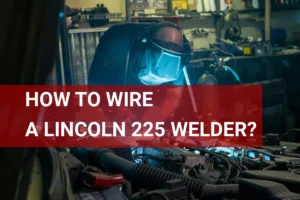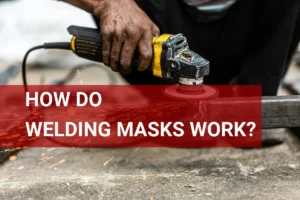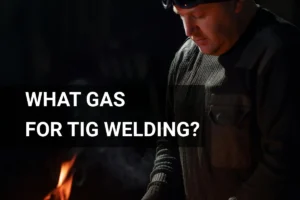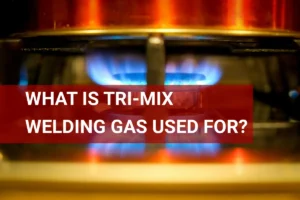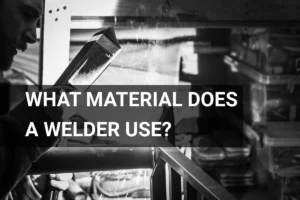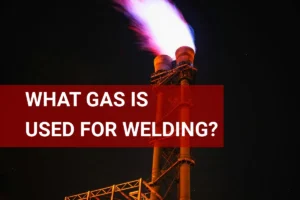Where Can I Buy Welding Gas? Your Guide to Suppliers and Types
Published on: May 17, 2025 | Last modified: March 4, 2025
By: Joe Carter
Welding gas is a specialized gas that helps fuse materials, mainly metals. It ensures a cleaner, stronger, and more efficient weld.
I’ve been asked many times where can I buy welding gas. It’s important to get quality gas for safety and optimal performance. In my experience, the right gas can make a big difference in the quality of your weld.
In this guide, we’ll cover types of welding gas, what you need before buying, steps to buy welding gas, safety tips, factors that influence where to buy it, and common issues. Plus, we’ll touch on inspection procedures, key benefits, applications, and alternatives. Have you ever wondered where can I get welding gas near me? This article has you covered!
Contents
- Where Can I Buy Welding Gas?
- What is Welding Gas?
- Types Of Welding Gas
- Prerequisites: What Do You Need?
- Steps to Buy Welding Gas
- Safety Tips
- Factors Influencing Where to Buy Welding Gas
- Common Issues
- Key Benefits Of Using Welding Gas
- Applications Of Welding Gas
- Are There Any Alternatives to Buying Welding Gas?
- Frequently Asked Questions (FAQs)
- Conclusion
- Additional Reading
Where Can I Buy Welding Gas?
Welding gas is a crucial element for fusion. So, where can I buy welding gas? Look at local welding supply shops, gas distributors, or supermarkets. Typical costs range from $15 to $50 for a cylinder, used in MIG and TIG welding.
What is Welding Gas?
Welding gas refers to gases used in welding, mainly to protect molten metal from contamination. Common types include Argon, Helium, and Carbon Dioxide (Co2). For example, Argon is about 99.9% pure and is widely used for Tungsten Inert Gas (TIG) welding. It’s typically stored in high-pressure cylinders at 2000 psi (13,790 Kpa).
Where can you buy welding gas? I remember my first search for it; I found several local suppliers. A quick trip to Airgas or Linde can save you time. They offer various gases in different sizes, ideal for any welding project.
It’s vital to have a reliable source for welding gas. When I need gas, I check my local welding supply stores. You might wonder, where can I get welding gas near me? I recommend visiting matheson.com or calling local suppliers for current prices on welding gas cylinders.
Types Of Welding Gas
What types of welding gas might you need?
-
Acetylene Gas
Acetylene is widely used for gas welding due to its high flame temperature. You can find it at local welding supply shops. To buy acetylene, visit an Airgas Store or MATHESON in Council Bluffs, IA, to check cylinder availability and prices.
-
Argon Gas
Argon is the most common shielding gas for MIG and TIG welding. It’s available at welding supply stores like Linde Welding Gas & Equipment Center in Carter Lake, IA. Call ahead to ensure it’s in stock and inquire about any deposit for new cylinders.
When considering the durability and repair options for welded materials, especially in contexts such as alloy wheels, understanding the limits of how many times you can weld an alloy wheel is crucial for maintaining safety and performance.
-
Carbon Dioxide Gas
Carbon dioxide is often blended with argon for MIG welding to improve penetration. You can find it at Tractor Supply or other nearby welding supply stores. Just swing by during business hours and check if they offer refills for your cylinder.
-
Helium Gas
Helium is used for TIG welding, especially on aluminum. You’ll find it at specialty welding suppliers like Airgas. When purchasing helium, ask about pricing for both refills and new cylinders.
-
Hydrogen Gas
Hydrogen is used in high-temperature welding processes. It’s available at industrial gas suppliers. To obtain hydrogen, contact your local welding supply center and ask about their inventory and handling guidelines, as it can be tricky to manage.
We covered the various types of welding gas used in different applications. Next, we will cover the necessary prerequisites.
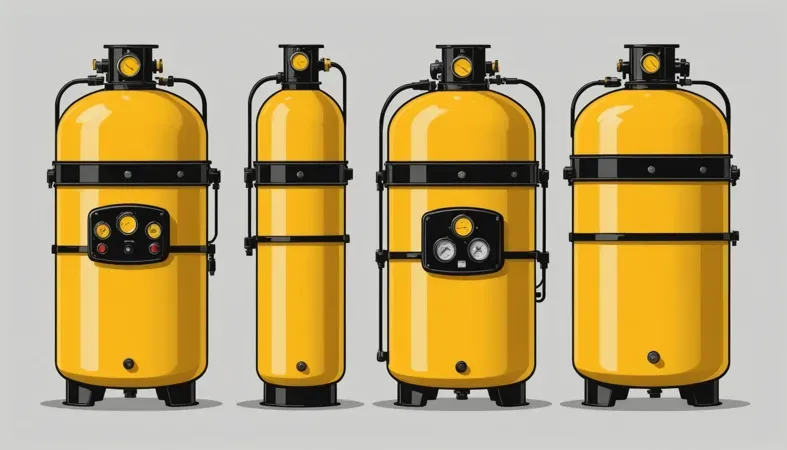
Prerequisites: What Do You Need?
What do you need to start buying welding gas?
- Welding Gas Cylinder: You need a cylinder, such as the Linde 75/25 Argon/CO2 mix. It’s essential for MIG welding as it provides a stable arc and reduces spatter.
- Decent Regulator: Get a regulator like the Victor SR 250D. It controls gas flow securely, making your welding safer and more effective.
- Proper Fittings: Ensure you have cylindrical fittings, such as Lincoln Electric fittings. These are crucial for a secure connection between the cylinder and your welder.
- Gas Purchase Documentation: Be ready to show DOT identification, like a driver’s license. This documentation may be required at suppliers like Airgas or MATHESON when purchasing gas.
So far we covered the essentials required for welding. Next, let’s look at the process for purchasing welding gas.
Steps to Buy Welding Gas
Here are steps to quickly and easily find welding gas near you.
-
Research Local Suppliers
Start by researching local suppliers. Check online for stores like Airgas and MATHESON, which offer a range of gases, such as 75/25 welding gas or argon. Most major cities have at least one dedicated welding supply store. It’s crucial to know the right class of fire extinguisher for welding to ensure safety during operations. Learn more about the class fire extinguisher for welding.
After identifying a few stores, check their hours. Stores like Linde and Airgas often operate until late afternoon. Call ahead to confirm they have the gas type you need in stock.
-
Visit the Store
Next, visit the stores you found. While browsing, note the cylinder sizes and prices. Cylinders typically come in 20 cu ft (0.57 M3) or larger sizes. Prices vary, so compare before purchasing.
When choosing welding supplies, it’s crucial to note the different techniques involved. Mastering the skill of welding uphill effectively requires practice and attention to detail.
While you’re there, check for additional supplies. You might want hoses, regulators, or safety gear like jackets, which retailers often stock alongside gases. Every bit helps!
-
Ask About Regulatory Requirements
If you’re new to buying welding gas, ask staff about local regulations. Some areas have specific storage guidelines. I once assumed I could store gas anywhere, but they require certain conditions to keep it safe. Furthermore, mastering different welding techniques, such as how to heliarc weld, can enhance your skills and ensure versatile applications.
Find out if you need any permits. Different states have distinct rules, and it’s best to be prepared. Misinformation can lead to hassles later!
-
Check Cylinder Exchange Programs
Inquire about cylinder exchange programs. Many suppliers, like Tractor Supply, offer convenient programs where you trade your empty cylinder for a filled one, saving time and effort. You’ll often pay a small exchange fee.
Keep track of your cylinder’s condition. Store owners usually check for damage before exchange. It’s a good practice to visually inspect your gas cylinder every few uses to avoid surprises.
-
Consider Online Purchases
Look into online options for buying welding gas. Some companies deliver directly to your location, but delivery may come with extra costs. Assess if it’s worth it compared to local stores.
Check reviews of online retailers to gauge reliability and quality. Good customer support is crucial in case you encounter issues with your purchase.
You should now have a good understanding of the steps involved in purchasing welding gas. In the next part, we’ll discuss safety tips.
Safety Tips
Let’s cover essential precautions for buying welding gas.
- Check for Labels – Ensure cylinders have proper labels and certifications, like DOT or CGA. This keeps you compliant and safe.
- Inspect for Damage – Look for dents or rust before purchasing. Using damaged cylinders can cause leaks and explosions.
- Secure Storage – Store gas cylinders upright in a cool, ventilated area to prevent pressure build-up. Consider using a cart like the WeldTec S70.
- Verify Supplier Credentials – Only buy from licensed suppliers. Check reviews on platforms like Google Business or Yelp.
Following these safety precautions is crucial; your safety and well-being are at stake.
Factors Influencing Where to Buy Welding Gas
What factors influence your options for welding gas?
-
Supplier Availability
The number of suppliers impacts your choices. Areas with multiple vendors, such as Airgas or Matheson, offer more options and competitive pricing.
-
Delivery Options
Consider the delivery services offered by welding supply stores. Local companies often provide faster delivery, which can save time if you’re in a bind.
-
Regional Regulations
Don’t underestimate local laws. Some areas have stricter gas handling regulations. It’s crucial to verify what’s accepted in your area.
-
Pricing Variability
Welding gas prices can vary significantly. Factors like supply and demand or the type of gas, such as 75/25, affect costs.
-
Gas Purity Requirements
Purity levels for welding gases vary by application. Higher purity may increase costs but ensures better quality welds.
We covered factors affecting the choice of welding gas. Next, we will cover common issues related to welding gas use.
Common Issues
Here are some unique problems you might face with welding gas.
-
Supply Chain Delays
Welding gas may experience supply chain delays. You might notice long wait times for delivery. To resolve this, line up multiple suppliers.
-
Inconsistent Pricing
Welding gas prices can change unpredictably. I once ordered when prices shot up. To avoid this, compare prices online or with local suppliers regularly.
-
Quality Of Weld
Using inferior welding gas results in poor welds. Look for a bubbly or inconsistent appearance in the weld bead. Use reputable brands and test on scrap metal first.
-
Limited Supplier Options
Finding welding gas can be difficult in some regions. Identifying local suppliers can help. I suggest keeping a list of trustworthy sources nearby.
-
Regulatory Compliance Challenges
Welding gas must meet safety standards. Check for certification labels on your cylinders. Ensure compliance with local laws to avoid fines and hazards.
Key Benefits Of Using Welding Gas
The main benefit of using welding gas is its ability to create a cleaner, stronger weld. This results in fewer defects, saving you time and money on repairs.
Additionally, welding gas offers versatility for various applications, enhances weld penetration, promotes better arc stability, and provides a smoother finish. Whether you’re a hobbyist or a professional, welding gas makes your projects easier and more efficient. If you are considering the compatibility of welding rods with gas, explore insights on what welding rod to use.
Applications Of Welding Gas
I’ve seen people use welding gas for various tasks. Its applications include:
- Metal Fabrication: Welding gas is essential for MIG and TIG welding. It improves weld quality, making it cleaner and stronger. It’s highly popular in construction.
- Automotive Repair: Welding gas repairs damaged car frames effectively, creating a sturdy and lasting bond. It’s widely used in auto shops.
- Artistic Sculpting: Sculptors use welding gas to fuse metals into unique structures, providing precise control over heating and melting. It’s gaining popularity among modern artists.
- Pipeline Construction: Welding gas is used to join steel pipes in sewer or gas lines, ensuring solid connections. It’s crucial for infrastructure projects.

Are There Any Alternatives to Buying Welding Gas?
Let me share an insight I’ve gained over the years: you don’t always need traditional welding gas. Consider options like Flux-Cored Arc Welding (FCAW) using self-shielding wires, which eliminates the need for external gas entirely. Also, some folks prefer stick welding for its versatility; all you need is an electrode, not gas, like those from Lincoln Electric.
You might also look into products like MIG welding with 75/25 welding gas for better performance but at a higher cost. If you can’t find local outlets like Airgas or MATHESON, consider online suppliers that deliver. For a variety of options and information regarding the latest tools and technology in the field, explore welding equipment. These alternatives can save you time and money while still giving you the results you need!
To further understand the complexities and choices in welding, it is important to grasp effective weld removal techniques.
Frequently Asked Questions (FAQs)
Now let us look at some common questions I typically get asked.
Can Anyone Buy Welding Gas?
Yes, anyone can buy welding gas. You just need to be at least 18 years old and provide proper identification when purchasing.
How to Obtain Argon Gas?
To obtain argon gas, you can visit a local welding supply store or order it online. Argon is commonly used for TIG welding, offering shielding to prevent oxidation.
How Much Does Argon Gas Cost?
The cost of argon gas varies but typically ranges from $50 to $200 per cylinder (Approximately 40 Liters) depending on the supplier and location. Prices might fluctuate based on demand.
What Gas Do You Use for Welding?
For welding, you often use gases like argon, helium, or oxygen. Argon is ideal for MIG and TIG welding, providing a stable arc and a clean weld.
Where Can I Buy Welding Supplies?
You can buy welding supplies at hardware stores, specialized welding shops, or reputable online retailers. Popular chains like Home Depot and Lowe’s often carry essential items.
Where Can I Buy a Welding Helmet Near Me?
To buy a welding helmet, check local hardware stores or welding specialty shops. Many places also offer helmets online with a variety of price points.
Conclusion
We’ve reached the end, and I appreciate you sticking around. We covered various topics like what welding gas is, the types available, and prerequisites you need before buying. We also discussed safety tips, common issues, and factors influencing where to buy welding gas, among other important points.
Hopefully, I was able to impart some of my experience about where you can buy welding gas. You can find it at local welding supply stores, online retailers, and gas suppliers. Don’t forget, locations could vary; some may even offer the best deals on items like welding helmets and jackets right near you.
If you’re eager to explore more topics related to welding and enhance your knowledge further, feel free to visit our homepage at What is Welding for additional expert articles and valuable welding advice.
Additional Reading
- European Welding Federation (EWF): https://www.ewf.be
Joe Carter is a retired welding professional with over 40 years of hands-on experience in the industry, spanning ship repair, structural welding, and even underwater projects. Joe is a master of MIG, TIG, and Stick welding. Passionate about mentoring the next generation of welders, Joe now shares his decades of expertise and practical insights to help others build rewarding careers in welding.
Local Suppliers, Safety Tips, Types Of Welding Gas, Welding Equipment, Welding Gas, Welding Supplies
